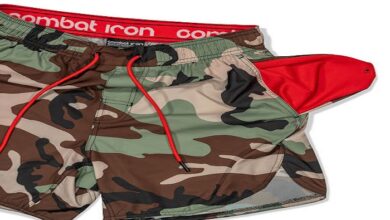What All Things to Consider Before Planning to Buy a Bike in India

When it comes to buying a two-wheeler, you have many options. However, choosing one is difficult, as each manufacturer has a unique quality that sets it apart or makes it better than the others.
Here are a few essentials that can help you determine your needs, evaluate the bike you want to buy, and ultimately get your dream motorcycle.
9 Things to Look into Before Buying a New Bike in India
Below are the things that you must look into before buying a new bike in India:
1. Do Thorough Research
Before buying a new bike, it’s crucial to conduct thorough research. Compare models, features, and reviews to find the perfect fit for your needs and preferences. When doing homework, try researching the different kinds of bike insurance features, such as NCB and IDV. NCB stands for No Claim payment, a unique payment granted by insurance companies for not raising any claims for a year.
2. Don’t be Confined by Boundaries
Don’t restrict yourself to using just one type of bike or shop. You can have strong brand loyalty, but you should still try out other companies. You might even discover a superior quality in your research than your original selection. After all, there’s no harm in considering every reasonable possibility.
3. Prioritise Your Needs and Comfort
When buying a bike, don’t compromise on your comfort level. Resist the temptation to accept a more economical bike if it appears unfit for your needs. Additionally, you should only choose the bike a friend or family bought once you’ve ridden it and found it appropriate for your needs and preferences. Since you intend to use it for a long time, you should feel at ease about your purchase.
4. Understand Fuel Efficiency and Budget
A crucial piece of advice when purchasing a bike is to be aware of your budget. Which best fits you depends on how much you can afford. Narrowing and filtering your options is much easier with a proper budget plan.
Additionally, it is advisable to consider the bike’s fuel efficiency. More expensive or powerful bikes consume more fuel to produce power, which results in worse fuel efficiency. So, if you want to save money, go for a fuel-efficient vehicle.
5. Bike Accessories are Crucial
Newbie riders frequently set aside money just for their bikes, needing to account for the price of some essential extras. The most basic of these equipment is a regular helmet.
It’s also a good idea to purchase tyre levers, inflators, extra tubes, and bike lights. Therefore, the bike price, bike insurance, and accessory charges must all be included in purchasing a bike.
6. Check for Bike Insurance
The Motor Vehicles Act of 1988 mandates that all owners of two-wheelers get at least third-party bike insurance. Therefore, failing to obtain adequate insurance coverage could result in legal penalties.
7. Take a Test Ride
Before you rode the bike, you could never tell how well it fits you based on appearance. Several manufacturers offer demo bikes for free, or you can rent or borrow one to try it.
When test riding, pay attention to comfort, handling, and fit. Also, factors like braking responsiveness and overall riding experience should be assessed to make an informed decision.
8. Check the Availability of Service Centres
Your vehicle will go on scheduled servicing for maintenance and care after a particular period. Thus, you must check the availability of service centres in your city.
Other than this, check the accessibility of bike parts and accessories at the nearest service centre. Finding the right part or accessories for your damaged bike will be difficult if the service centre is not nearby.
9. Check for IDV in Bike Insurance for Second Hand Bikes
IDV in bike insurance is the basis for determining the premium amount and the compensation you receive in the event of damage or loss, making it a critical aspect of bike insurance coverage. When buying a second-hand bike, it is crucial to check for IDV, as this is the current value of your bike as per the insurance company and not the market value.
It is imperative that you thoroughly review the policy materials. First, decide whether general or comprehensive two-wheeler insurance suits your bike. Then, try to gain insights into all the technical details regarding NCB, IDV, riders, etc.
The two key elements of choosing the best bike that meets your needs and is an ideal fit for your needs are keeping an open mind and staying vigilant on all fronts. So, make an informed decision and hunt for the best insurance plans to safeguard your bike from mishaps.




